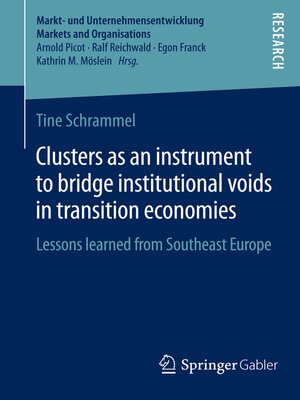Clusters as an instrument to bridge institutional voids in transition economies
ebook ∣ Lessons learned from Southeast Europe · Markt- und Unternehmensentwicklung Markets and Organisations
By Tine Schrammel

Sign up to save your library
With an OverDrive account, you can save your favorite libraries for at-a-glance information about availability. Find out more about OverDrive accounts.
Find this title in Libby, the library reading app by OverDrive.



Search for a digital library with this title
Title found at these libraries:
| Library Name | Distance |
|---|---|
| Loading... |
Transition economies, such as the countries in Southeast Europe, face an expeditious institutional transition from a centrally planned to a market economy. The state withdraws from its monitoring function, which results in institutional voids that affect the economy in general and small and medium sized enterprises (SMEs) in specific. With a qualitative case study approach Tine Schrammel develops a scheme to detect institutional voids as one source of competitive disadvantages of SMEs in transition economies. In a second step she demonstrates that specific cluster services bridge institutional voids and improve the competitive position of SMEs in environments of institutional voids. The findings add to the understanding of institutional voids and to the role of clusters in transition economies.







